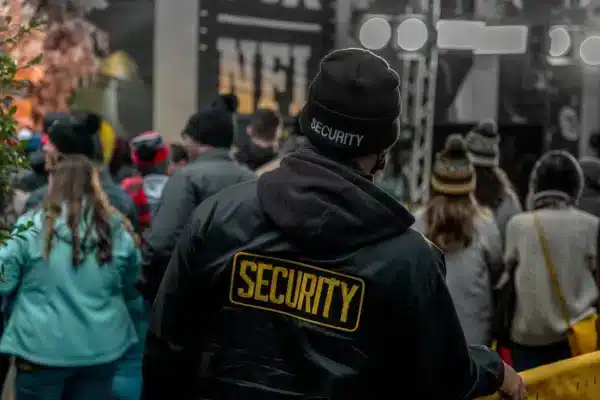
Organizing successful events involves meticulous planning and execution, with a paramount focus on the safety and security of attendees. In this article, we will explore the indispensable role of security guards in ensuring the safety of events, from concerts and conferences to festivals and sporting gatherings.
1. Crowd Management and Control
One of the primary responsibilities of security guards at events is crowd management and control. Large gatherings often bring diverse groups of people together, and effective crowd control is essential to prevent chaos and ensure a smooth flow of foot traffic. Security guards are trained to handle crowds efficiently, preventing overcrowding, managing queues, and responding to any emergent situations with precision.
2. Prevention of Unauthorized Access
Security guards act as the first line of defense against unauthorized access to event venues. By monitoring entry points and enforcing access control measures, they play a pivotal role in preventing individuals without proper credentials from entering restricted areas. This not only safeguards the safety of attendees but also protects the integrity of the event.
3. Identification and Response to Suspicious Activity
Vigilance is a key attribute of security guards, and they are trained to identify and respond to any suspicious or unusual activity. Whether it’s detecting potential security threats, unattended items, or individuals behaving erratically, security guards are equipped to assess the situation swiftly and take appropriate actions to mitigate risks.
4. Emergency Response and Evacuation Planning
In the unfortunate event of an emergency, security guards are trained to respond promptly and effectively. This includes implementing evacuation plans, directing attendees to safety, and coordinating with emergency services. Having a well-prepared security team is instrumental in minimizing the impact of emergencies and ensuring the well-being of everyone present.
5. Conflict Resolution and Mediation
Events can sometimes witness conflicts or disputes among attendees. Security guards are trained in conflict resolution and mediation techniques to de-escalate tense situations peacefully. Their presence alone can often deter potential conflicts, and their ability to intervene diplomatically contributes to maintaining a positive and secure atmosphere.
6. Asset Protection
Events often involve valuable assets, ranging from equipment and merchandise to VIP areas and sponsor displays. Security guards are responsible for safeguarding these assets, deterring theft or vandalism, and ensuring that everything remains intact throughout the duration of the event. This not only protects the interests of event organizers but also contributes to the overall success of the occasion.
7. First Aid and Medical Assistance
Security guards are often trained in basic first aid and emergency response procedures. In cases of medical emergencies, they can provide initial assistance until professional medical help arrives. Their quick response can make a significant difference in critical situations, emphasizing the importance of having trained personnel on-site during events.
8. Communication Coordination
Effective communication is crucial during events, especially when dealing with large crowds and complex logistics. Security guards play a central role in coordinating communication between different teams, including event organizers, law enforcement, medical personnel, and other security staff. This ensures a cohesive response to any situation that may arise.
9. Prevention of Unruly Behavior
Maintaining a safe and enjoyable atmosphere at events involves preventing and managing unruly behavior. Security guards are trained to identify signs of disruptive conduct and take preventive measures. Their proactive approach contributes to creating an environment where attendees can feel secure and enjoy the event without concerns about their safety.
10. Representation of Authority and Deterrence
The visible presence of security guards serves as a deterrent to potential troublemakers. The authority represented by security personnel contributes to a sense of order and discipline, discouraging disruptive behavior. This visual deterrent not only promotes a secure environment but also fosters a positive atmosphere conducive to the success of the event.
The role of security guards in ensuring event safety goes far beyond traditional notions of surveillance. Their multifaceted responsibilities encompass crowd management, emergency response, conflict resolution, and asset protection. By investing in a professional and well-trained security team, event organizers can create an environment where attendees can focus on the experience, knowing that their safety is a top priority. The role of security guards in event safety is not just about responding to incidents; it’s about proactively creating a secure and enjoyable atmosphere for everyone involved.
